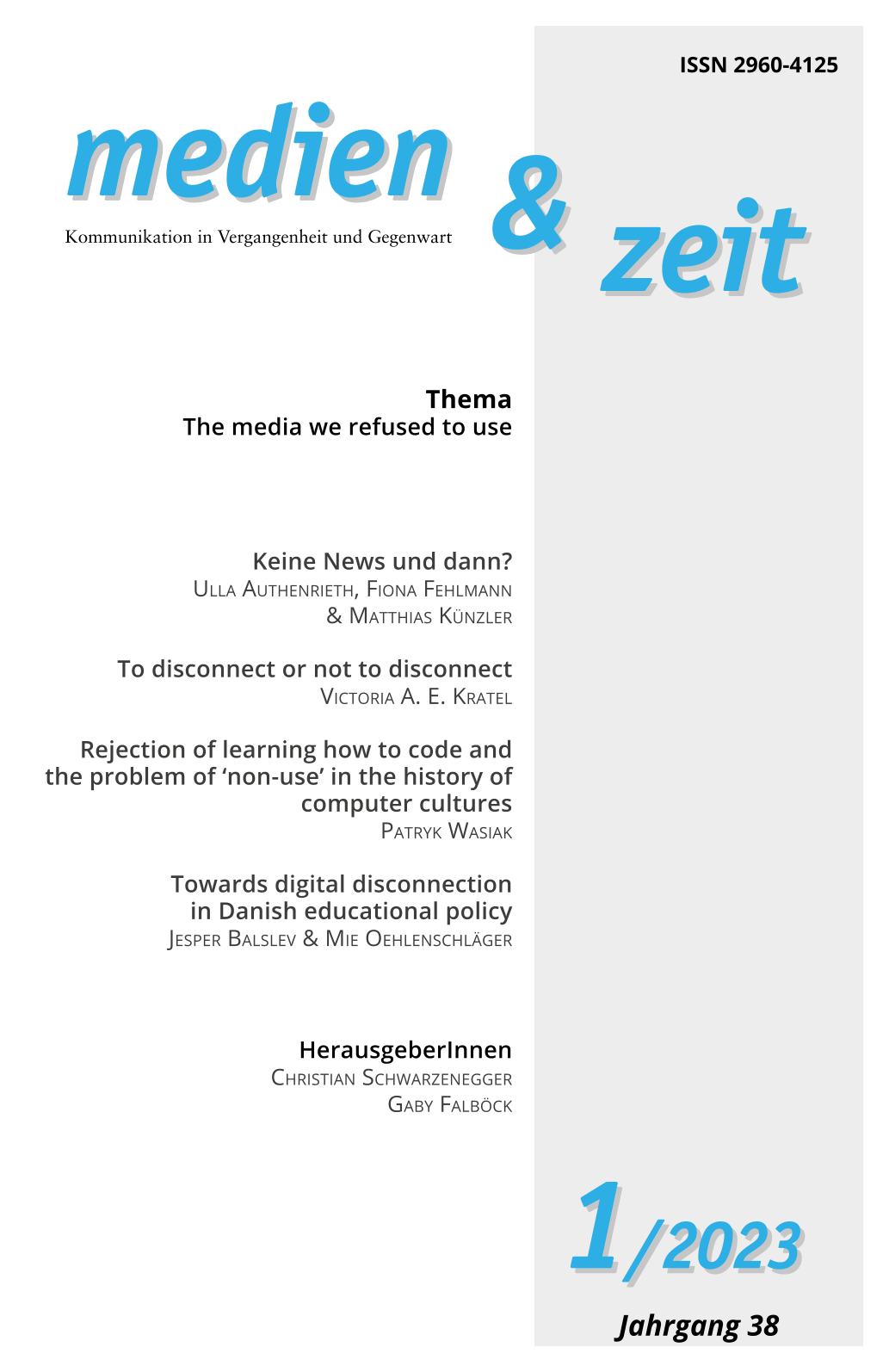To disconnect or not to disconnect
A question negotiated between unequal structures and different s copes of personal agency
Schlagworte:
digital disconnection, self-determined media use, homo disconnectus, structure and agency, right to disconnect, gender, feminism, social classAbstract
In the “digital age” (Ahmed, 2020) and its “constant connectivity” (Couldry & Hepp, 2017), the countertrend of digital disconnection is gaining momentum in both popular culture and academia. And although media non-use practices seem more relevant than ever, not everyone is able to self-determine their media use. This scholarly essay seeks reasons for the unequal access to digital disconnection. The theoretical basis is provided by contributions of Pierre Bourdieu and Anthony Giddens to the structure and agency debate. Building on this, I introduce the fictitious agent of homo disconnectus, who is given maximum agency and the best structures to digitally disconnect. The homo disconnectus thus serves as a tool to illustrate contrasts between privileges and marginalization. A deeper examination of gender and class reveals that digital disconnection is particularly difficult for women and low-income earners. Therefore, I conclude that research should not focus solely on digital disconnection that is already practiced but should also closely investigate where and why it cannot take place.
Downloads
Veröffentlicht
Zitationsvorschlag
Ausgabe
Rubrik
Kategorien
Lizenz
Der Zugang zu den Artikeln in der Zeitschrift medien & zeit ist öffentlich und kostenlos, ohne Kosten für die AutorInnen und steht allen Leser*innen unter der Creative Commons Attribution-NonCommercial-NoDerivatives 4.0 Lizenz zur Verfügung. Die Rechte für die Beiträge liegen bei den jeweiligen Autor*innen (no apc) .



